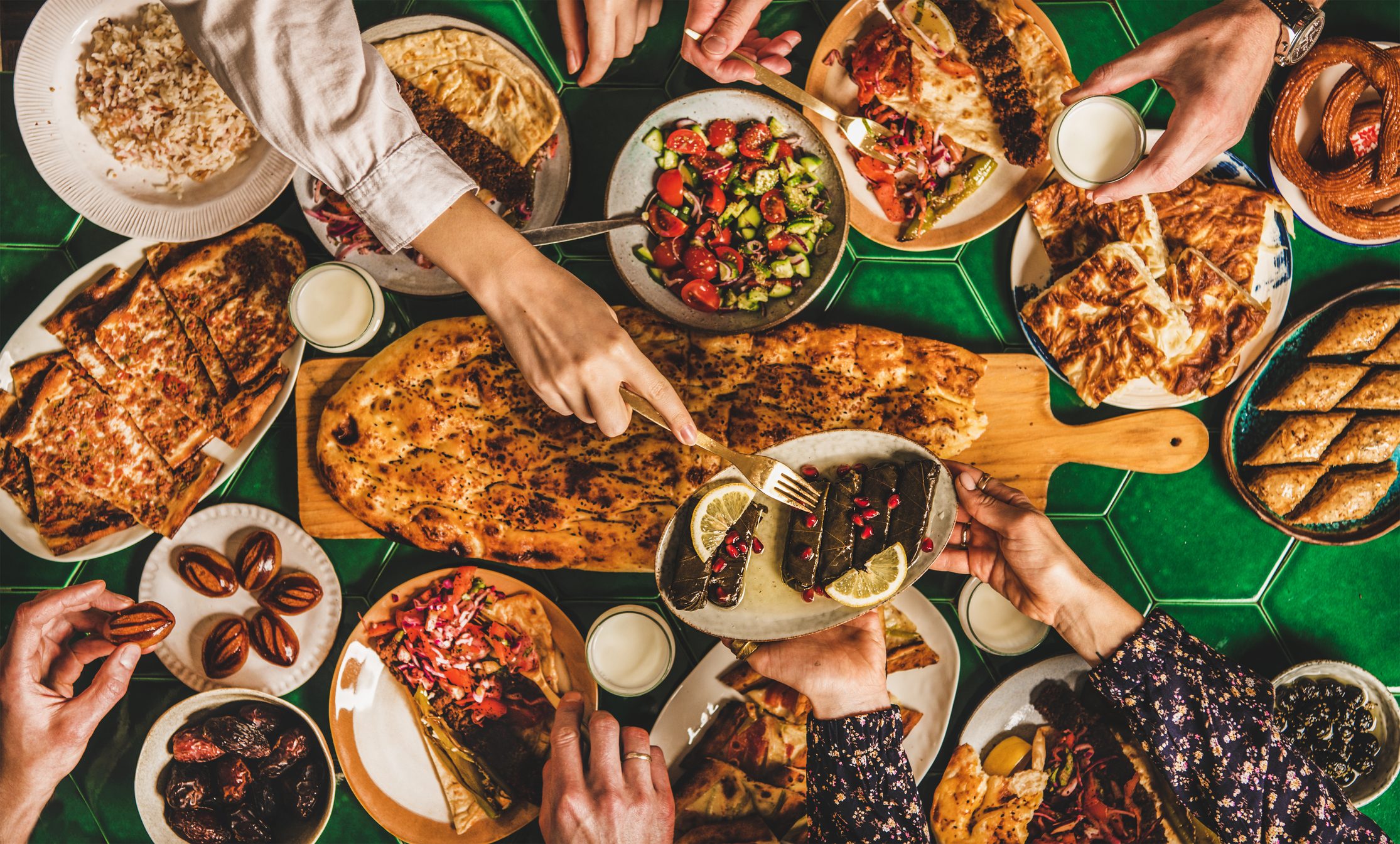The Most Advisable Foods to Consume During Ramadan
Fasting is no easy feat but you can make it easier by eating the right foods. Some foods will make it easier on you however there are others that can make it more difficult. Keep reading to find out the best foods to eat during this time.
;Resize,width=742;)
Food you consume during Ramadan has a huge significance on your energy levels. After abstaining from eating all day, it is not uncommon for people to feel tempted to overeat and indulge in sugary drinks during iftar and suhoor, but according to some reports, this may not be a good idea.
Rahma Ali, a clinical dietitian at Burjeel Hospital Abu Dhabi, has claimed that meals eaten for iftar and suhoor should be balanced diets. This means that they need to contain nutrients from each food group, such as vegetables, cereals, meat, dairy products and fruit.

Ali said: “Fasting during Ramadan can improve one’s health, but only if done in a proper manner. If not, it can cause more harm than good."
According to Ali, it is crucial that you have control of yourself when you see appetizing food. "The key is to remember that Ramadan is a month to reap rewards and benefits, and increase your spiritual connection,” Ali added.
Meals you eat for Suhoor must be balanced so it can top up your energy, enabling it to last as the hours of the day pass. Note that whatever you eat needs to keep you hydrated so a lot of thought should be put into whatever you choose.
Ali believes that while Suhoor is important, what you eat for iftar can not be overlooked. He said: "it is important during Ramadan to break the fast with a balanced diet ensuring that the essential nutritional needs of your body are met."
These foods include sodium and potassium, which are usually lost due to sweating, especially during the hotter months.
Below are some great suggestions for foods to eat and avoid during iftar and suhoor.
What to eat for iftar

1.Potassium-rich fruits
The benefits of potassium can not be underestimated. It is crucial for the proper functioning of systems within the human body. A few of its key roles include minimizing cramps and maintaining fluid and electrolyte balance.
Foods that contain a lot of it include beans, dark leafy greens, potatoes, squash, dates, yogurt, avocados, mushrooms and bananas.
2.Enough fluids
Remember to consume as much water or fruit juices as you can between iftar and bedtime to lessen the risk of dehydration.
3.Raw nuts
Almonds contain good fats which scientists claim is an essential, especially when your body needs fats fasting for long hours. Raw nuts are literally optimized for iftar because they can help you to feel full for longer.
Foods to avoid during iftar

1.Carbonated drinks
This is a no brainer. Processed beverages and carbonated drinks are a no-no because of how high they are in sugar. This increases risk of becoming obese and can also lead to bloating and gas.
2.High-sugar foods
Foods like sweets and chocolates contain little to no nutritional value and are high in calories. They can cause weight gain and eventually lead to health issues if consumed regularly.
3.Fried foods
Fried foods should be avoided because they contain a lot of fat that will be stored in the body as fatty tissue. Consuming fatty foods after long hours of fasting can trigger acidity and indigestion.
What to eat during suhoor

1.Foods rich in protein
A good example is eggs. They help you stay full for longer.
2.Fibre rich food
They aid slower stomach digestion and keep you fuller throughout the day. A good example is oatmeal which is rich in fiber.
3.Calcium and vitamin-rich foods
Dairy products are a great source of nutrition. Go for a yogurt smoothie or choose a vanilla and honey milkshake. They will keep you full and hydrated throughout the day.
Foods to avoid during suhoor

1.Simple or refined carbohydrates
These include sugars, white flour, pastries, doughnuts and croissants. They only keep you full for three to four hours and don't contain essential nutrients.
2.Salty foods
Too much salt in the body can trigger thirst while fasting, so it is best to avoid foods like salted nuts, pickles, crisps.
3.Caffeinated drinks
Coffee contains caffeine which can make you lose sleep and be restless. It also makes you dehydrated.
;Resize,width=767;)
;Resize,width=712;)
;Resize,width=712;)
;Resize,width=712;)
